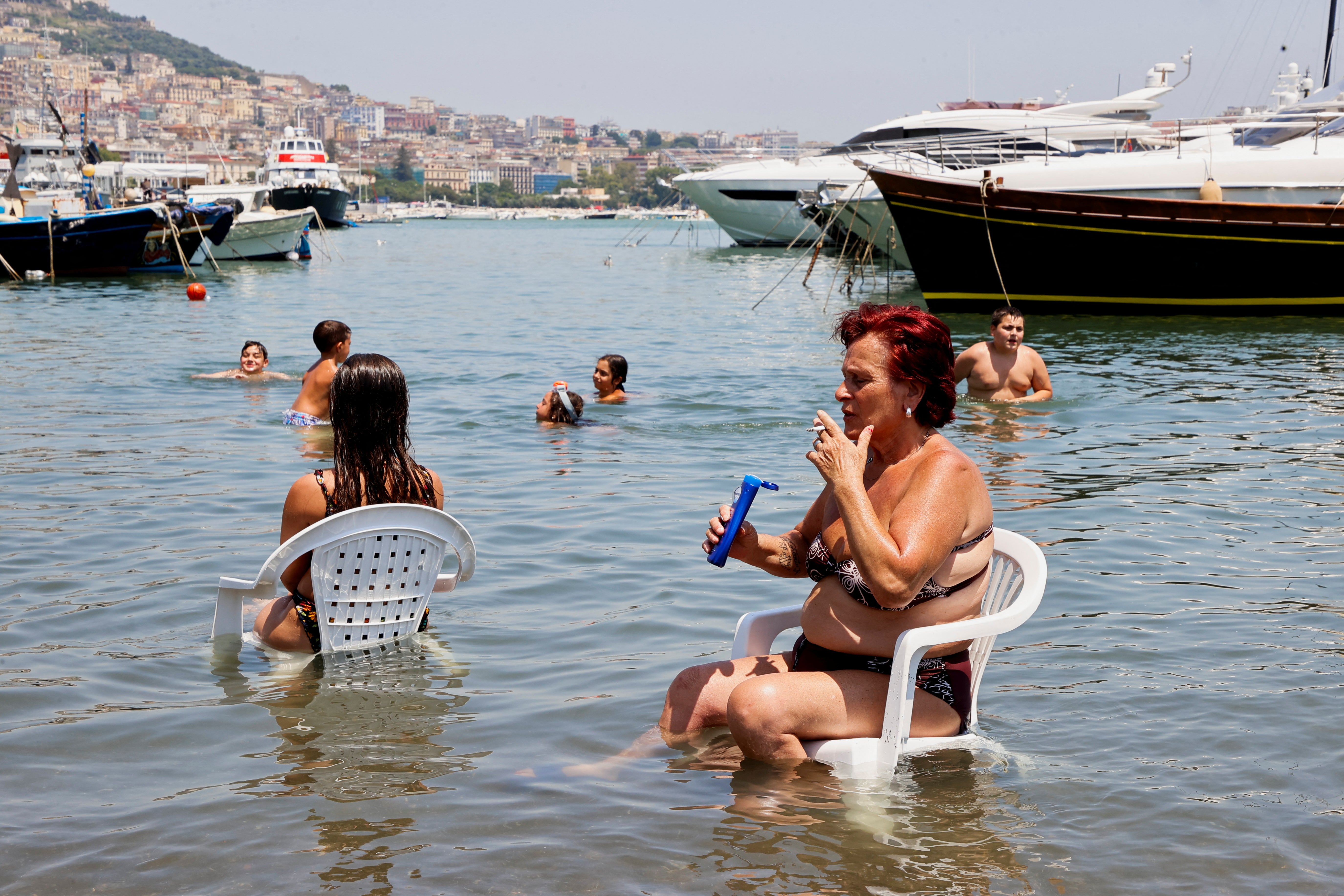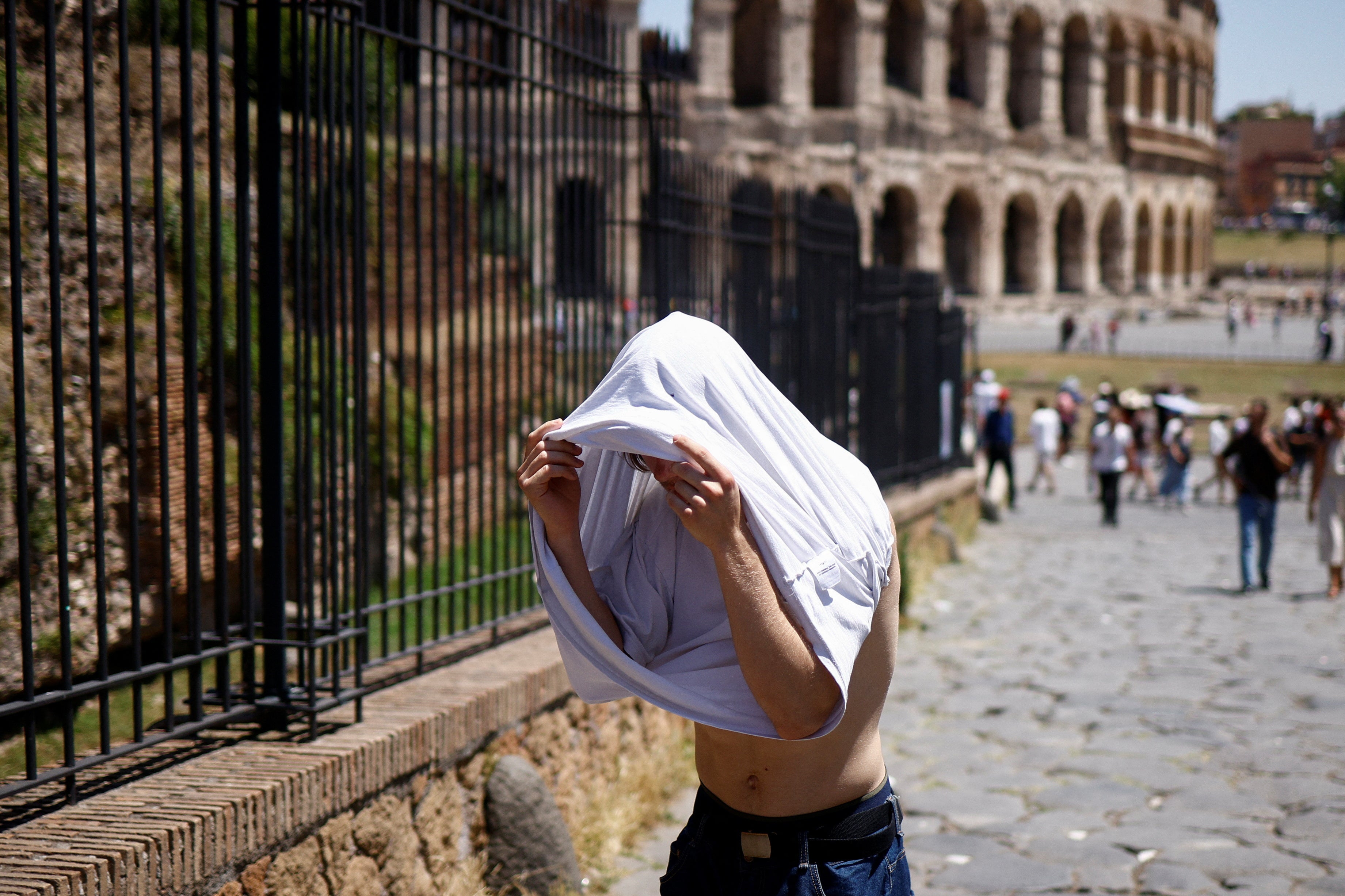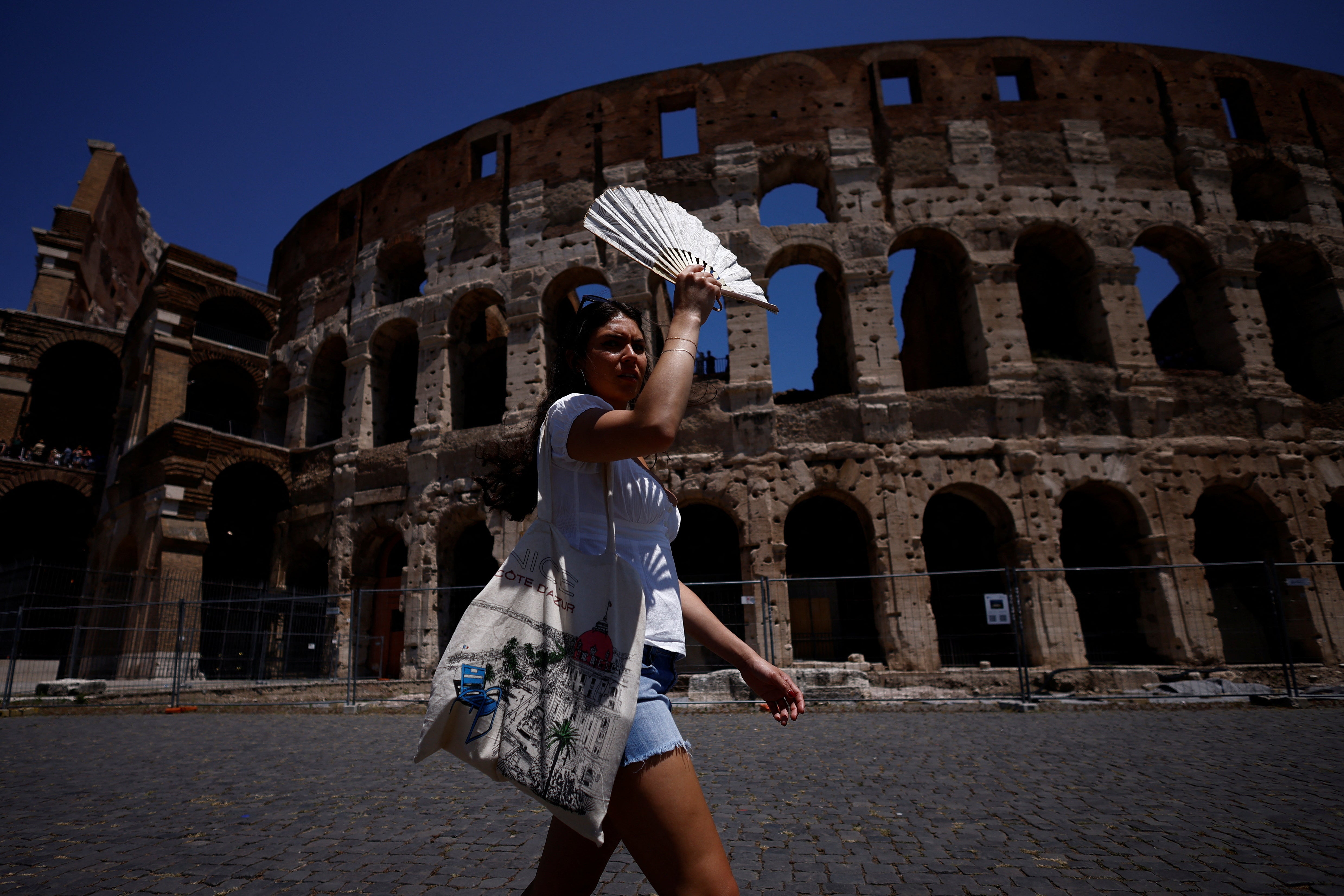European heatwave Cerberus claims first life as worker dies in 40C heat
Heatwave named after mythological underworld monster claims first life in Italy

Your support helps us to tell the story
From reproductive rights to climate change to Big Tech, The Independent is on the ground when the story is developing. Whether it's investigating the financials of Elon Musk's pro-Trump PAC or producing our latest documentary, 'The A Word', which shines a light on the American women fighting for reproductive rights, we know how important it is to parse out the facts from the messaging.
At such a critical moment in US history, we need reporters on the ground. Your donation allows us to keep sending journalists to speak to both sides of the story.
The Independent is trusted by Americans across the entire political spectrum. And unlike many other quality news outlets, we choose not to lock Americans out of our reporting and analysis with paywalls. We believe quality journalism should be available to everyone, paid for by those who can afford it.
Your support makes all the difference.A deadly heatwave sweeping Europe has claimed its first life prompting health warnings for tourists.
A 44-year-old worker was reportedly painting a zebra crossing in 40C heat at midday on Tuesday when he collapsed. He is said to have lost consciousness due to the intense heat in the town of Lodi outside Milan, Italy.
It comes as an area of high pressure – named Cerberus after the underworld monster from Dante’s Inferno – makes its way across the country. The country saw highs of 40C again on Wednesday with Sicily and Sardinia forecast to be as high as 48C.
The street sign painter was with colleagues when he slumped to the ground and was rushed to hospital, according to local media.
He was rushed to hospital but doctors were unable to save him, The Times reported. It is believed his death is linked to the extreme heat currently making its way across the continent.
General secretary of Fenealuil Milan-Cremona-Lodi-Pavia, Salvatore Cutaia, said: “The climate is a cause of accident and also of death. This is a situation that could be repeated given the temperatures.
“We must question ourselves seriously and heavily sanction the responsibilities of an avoidable death.”
Temperatures in the Mediterranean could set a European record this week as the heatwave begins engulfs southern and eastern Europe.
The highest temperature in European history was recorded in Syracuse, Sicily, on 11 August 2021, with a high of 48.8C.

Thousands of holidaymakers in the Mediterranean are being warned to take extra care in the dangerous heat.
British tourists are among those grappling with the soaring temperatures, with one visitor fainted in front of Rome’s Colosseum on Tuesday.
The tourist collapsed before being passed bottles of water by helpful passersby, according to LBC.
President of the Italian Meteorological Society, Professor Luca Mercalli, said: "We know that there will be temperatures above 40C or 45C. We could get close to the record. Either way, the levels will be very high.”

The Red Cross has urged people to check on the most vulnerable during the high temperatures.
People are being urged to stay hydrated, avoid caffeine and alcohol and look out for signs of heatstroke after a British tourist collapsed and fainted in front of the Colosseum in Rome as temperatures there reached over 36C on Tuesday.
The exceptional heat is forecast to last across the Mediterranean for around two weeks.
Italy is expected to be the worst-hit, Italian meteorologist Stefano Rossi told La Stampa that humidity levels across the peninsula will mean temperatures will not drop below 22C at night-time.

The heatwave is also hitting France, Germany, Spain and Poland; temperatures are expected to hit 44C in some parts of Spain later this week.
Britain is not likely to see the return of hot weather until the end of this month.
Heavy rain and thunderstorms are expected to continue until at least 23 July when a two-week heatwave could hit the UK.
The extreme temperatures in Europe come after record-shattering global temperatures as the world sees its hottest days on record in the first week of July.

Professor Richard Betts, climate scientist at the Met Office and University of Exeter, said the alarming highs are in line with scientists' warnings about the continued use of fossil fuels.
He told the BBC: “This is all a stark reminder of what we've known for a long time, and we will see ever more extremes until we stop building up more greenhouse gases in the atmosphere."
Last summer's heatwaves may have contributed to over 61,000 deaths in Europe, according to a study by the Barcelona Institute for Global Health.
Europe experienced its hottest summer on record in 2022, marked by an onslaught of scorching heatwaves, devastating droughts and raging forest fires.
Scientists at Copernicus Climate Change Service said the heatwave in Europe would have been virtually impossible without global heating.
The human-induced climate crisis has been making heatwaves more intense and frequent, various assessments have shown.
This year, with the onset of El Nino, a weather phenomenon associated with increased warming, on top of the global heating of 1.2C, extreme temperatures have already been experienced in Asia, North Africa and North America.






Join our commenting forum
Join thought-provoking conversations, follow other Independent readers and see their replies
Comments